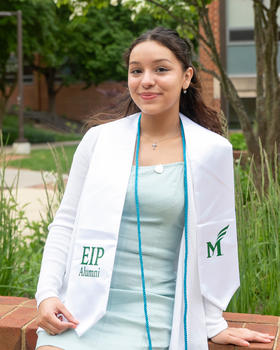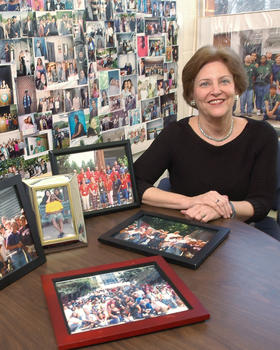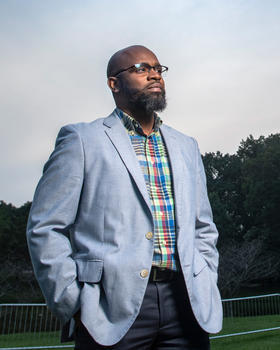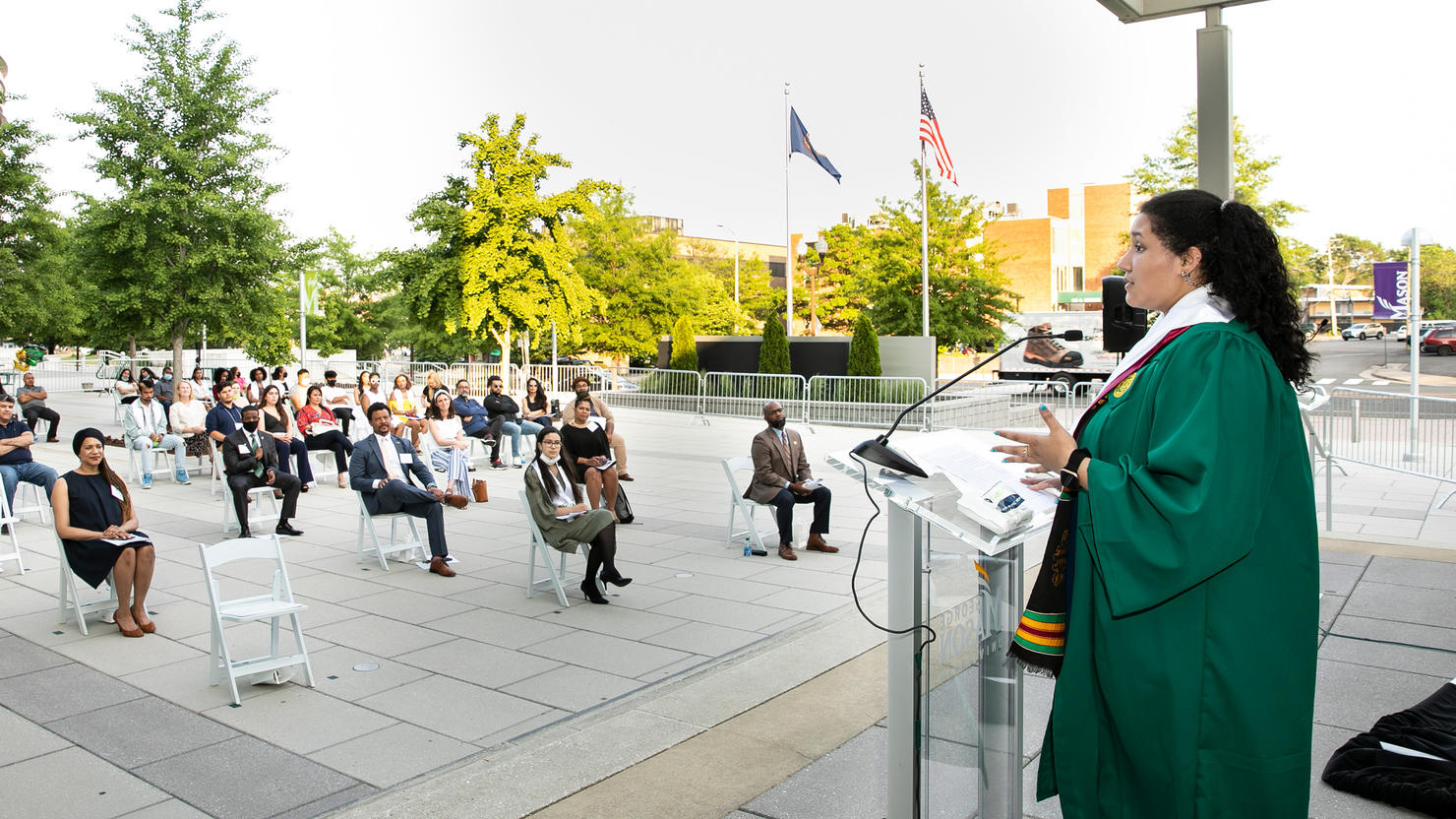For 35 years, Mason’s Early Identification Program has been helping Northern Virginia middle and high school students prepare for their future college careers.

Monica Amaya, a senior at Manassas Park High School in Virginia, balances studies and a job at a restaurant. In the fall, Amaya will be attending George Mason University and has been accepted into the Honors College. She credits Mason’s Early Identification Program (EIP) for getting her ready for college.
“The program pushed me, motivated me, throughout high school so I could set an example for my younger siblings and show that it is possible for us to achieve our dreams,” says Amaya, who will be the first in her family to go to college. “We can do anything if we work hard.”
There are thousands of Northern Virginia students like Amaya who can credit Mason’s EIP mentors and administrators for helping focus, encourage, and guide them through the rigors of high school academics and the maze of the college application process. The program specifically centers on lifting up both students from traditionally marginalized communities and those who will be the first in their families to attend college, also known as first-generation students.
The program was established in 1987 as the brainchild of then-Fairfax County Public Schools superintendent E. Wayne Harris and then-Mason president George Johnson. After more than 30 years, the program has grown into an innovative, multi-year college preparatory program for middle and high school students that is unique in the country not just for its breadth and reach, but also for the way it celebrates and embraces its students. That praise comes straight from EIP graduates, employees, and former director Lewis E. Forrest II, BA English ’96, MEd Counseling and Development ’05.
“There are other precollege programs and success programs out there,” says Forrest, now an associate dean in the Office of University Life at Mason. “But what makes EIP special is the level of care and commitment to these students. When they go through the program, students feel like they have a family at EIP, a family that cares deeply about how they are doing and seeing them succeed.”

At the time of EIP’s birth, there was a growing body of data showing that college student enrollment from marginalized communities was low in part because students were not getting the preparation they needed to attend college. Harris and Johnson determined that there had to be a way to help these students develop the skills they needed to both attend and succeed. Harris and Johnson partnered on an idea that initially centered on a summer academy to give students a chance to strengthen their academics in an encouraging environment.
“From the start, Mason has believed in the program and cared about the community around them and finding ways to help,” says EIP’s first director Hortensia Cadenas, BA ’80, MA ’93. “They saw a need in the community, and they did something about it.”
Funded by the State Council of Higher Education for Virginia, the pilot program reached 48 Fairfax County Public Schools students.
“Word spread quickly,” says Cadenas, who was hired in 1989 and ran the program until her retirement in 2010. “Other school systems started signing on. Arlington came next, then Prince William County.”

EIP now serves more than 700 students annually. The program provides access to educational resources for students from seven local public school systems, helping them acquire the skills they need to become lifelong learners, leaders, and responsible global citizens.
Students who are interested in the program apply during their seventh-grade year. If selected, they then spend the next five years in mentoring sessions, tutoring, a mandatory three-week summer academy, and additional programming intended to boost their academics, with a specific focus on science, technology, engineering, and mathematics (STEM).
“Over the past few years, we’ve been fine-tuning the program, building its infrastructure, and deepening our engagement with students,” says Khaseem Davis, current EIP director. “It is continuing to grow as we broaden the impact we have on students throughout the region.”
Davis credits Cadenas for growing the program early on. One of the first things Cadenas did as director was to increase opportunities for connections with students’ families.
“We added parenting and family classes so that we could establish communication with the parents, and they would [have opportunities to] understand how important college education was for their children’s future,” Cadenas says. “We needed to know that the students had support at home.”
After adding family classes, Cadenas says they began strengthening the academic opportunities, creating new weekend events for math and science review, along with opportunities to explore different careers. They found partnerships with local businesses and created college scholarship opportunities as well as tutoring jobs for EIP graduates attending Mason.
“For many of these students, being part of EIP is life-changing,” says Rhina Alvarado, BA ’07, MEd ’21, EIP’s associate director. “While they were motivated before, they start to see a path for themselves and they have a community that cares whether they get there. They have people who engage holistically in their development into adults.”
As college applications become more onerous, there’s an even heavier focus on the logistics of the admissions process, including helping students and parents understand the implications of a financial aid package.
“The parents of our students may care deeply about their children going to college but often don’t have the experience or understanding of what the application process entails,” says Alvarado. “We can guide our students and their families in every aspect of the process. We put a lot of blood, sweat, and tears into the success of every one of our students.”
One major benefit of participating in the program, alumni say, is establishing close friendships with students similarly motivated to excel.
“If you are a graduate of EIP, you still care deeply about the friendships you made during that time and about the program,” says Alvarado, herself an EIP alum who holds two Mason degrees. “You have a loyalty you never forget.”

This story originally ran in the Summer/Fall 2022 Mason Spirit.
Read More about the Early Identification Program
- April 5, 2024
- January 31, 2024
- October 16, 2023
- October 4, 2023
- August 7, 2023
